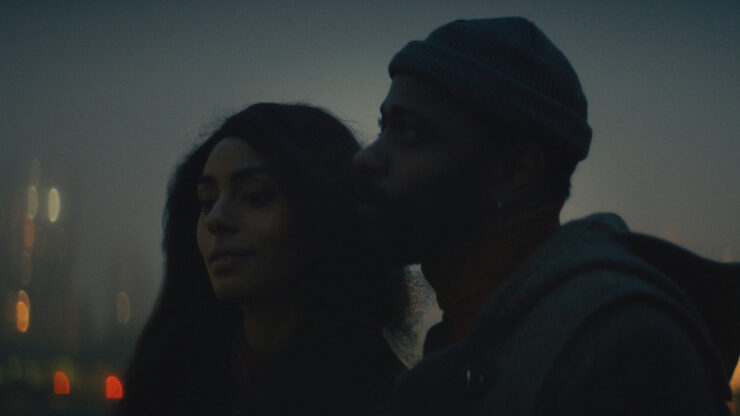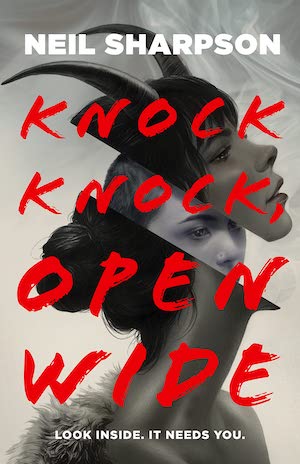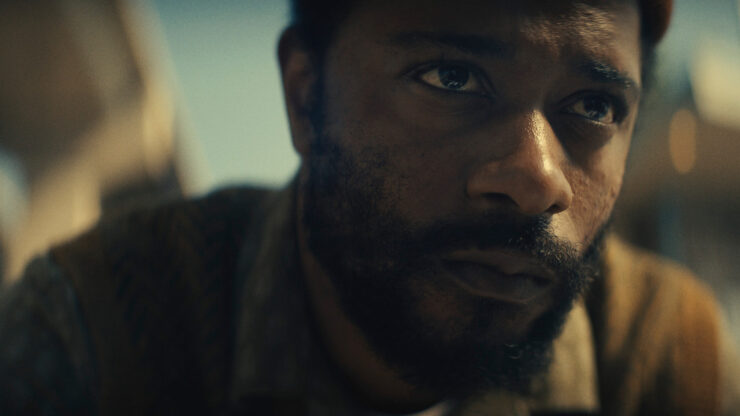Episode four of The Changeling kicks the horror up a notch while also throwing Apollo’s beliefs and assumptions out the window. Our stories make us who we are, the stories we tell about the world, each other, ourselves. They bring us together, but can also rip us apart. We place ourselves as the hero of our own stories, but what happens when we realize we’re the villain to someone else?
I only recently read the eponymous Victor LaValle novel the show is based on, and inhaled it so quickly I know I missed a ton of important details. The television script is so close to the book that watching it feels a little like rereading. I’m picking up hints this time around that I didn’t notice before. Almost every word means two or three different things. The plot and dialogue of the fourth episode is a spider’s web of foreshadowing. You may not know it now, but go back and watch this again after the finale.
Viewers confronting this story for the first time in the show will probably have a similar experience as I did reading it. It starts off slow and thoughtful. Apollo and Patrice deliver the book to William, a pathetic man trying to buy his way back into his ex wife’s good graces by spending $75,000 on a book. (Do not even get me started on how much I dislike To Kill a Mockingbird, a racist book all about white saviorism.) Patrice has an instant aversion to William, expressing his disdain through mockery, leading Apollo, who sees a little of himself in William, to take Patrice’s comments personally. Because he’s also smarting from discovering an online memorial page to baby Brian littered with cruel posts (some of which William later accuses Patrice of posting), goes on the defense. Our shining knight puts his goofy sidekick in his place.
That’s when you realize the story has veered off the expected course. The road LaValle and showrunner/series writer Kelly Marcel have laid is a little rougher now, the woods a little wilder, the clouds a little darker. Something seems off with William, but maybe it’s just the audience being paranoid. Everything he says has simple explanations. He borrowed a boat. He learned to drive it by watching online videos. He just wants to help a fellow lost man find his woman. Easy peasy, lemon squeezy. Except for the shadows lurking along the edge of the path and the sharp cries from unseen creatures. Apollo storms the castle that is the abandoned island hospital and demands Emma come out and face him. The trap is set, and he walks right into it.
He’s taken to Cal, where he’s treated to an unsettling puppetshow of straight up magic. In the book, he spends quite a bit of time at the island and its inhabitants, but the show speeds things up and trims things down. If there are other people on the island besides Cal and her guards, we don’t see them in this episode. Apollo cast Cal as the villain, the sorceress who corrupted his beauty and turned her into a beast, but every story has more than one side. To Apollo, he’s the hero here to slay the monster terrorizing innocent people, but to the women on Cal’s island he’s a bloodthirsty hunter come to slaughter his prey. Apollo wants revenge, but as far as Cal’s concerned there’s nothing to revenge. Emma didn’t kill baby Brian because that thing they were raising wasn’t a baby. Before, Apollo couldn’t—wouldn’t—hear Emma’s words as truth. “How do we protect our children?” Cal asks Apollo. He thought he was protecting Brian from Emma’s violence, but what if Emma was trying to protect Brian from something worse?

William’s sudden reemergence shatters Apollo and Cal’s temporary truce, and he and William are locked up in a makeshift jail. But where Apollo is stressed and angry, William is eerily calm. Gone is the weak-willed nobody. Here is the man who cracks jokes after being beaten and grins as his face bruises up like a rotting peach. This is a man for whom everything is going exactly according to plan. William was no hapless squire aiding our knight in his quest but a villain in disguise eager to fuck things up. Something terrible is coming to Cal’s island at William’s behest, and Apollo may not be able to stop it.
Something I’ve been thinking a lot about since reading the novel are the characters’ names. Apollo: the god of oracles and prophecy, the child of Zeus the god of law and order, the weather, and destiny and Leto the goddess of motherhood and defender of children. The stories differ depending on who is telling the story, but the highlights are the same. Much like Lillian, Leto partnered with an unsuitable man, fled her home to escape persecution, and gave birth to children she nearly died trying to protect. Her other child was Artemis, the goddess of hunting and childbirth. The name Lillian is rooted in the word “lily,” a flower that symbolizes purity; Leto represented modesty and was often depicted in art demurely lifting her veil. Zeus may have been the ruler of the gods, but he was no saint or hero. Although sometimes he helped others, as in the case with Leto, he also philandered and assaulted his way through most of the pantheon. Even his own children weren’t spared his wrath.
Callisto was the daughter of Lycaon, King of Arcadia. He attempted to serve Zeus a child he had killed and cooked—the stories say it could have been a child slave, his own son Nyctimus, or Callisto’s son Arcas—but when Zeus found out he punished him and his 50 sons by changing them into wolves (why we call being a werewolf lycanthropy). As a companion to Artemis, Callisto vowed chastity, but after being seduced by Zeus, she was turned into a bear and hunted while her son was stolen from her. See the parallels yet?
Buy the Book


Knock Knock Open Wide
Stepping out of Greek mythology means name origins get even hazier. I’m basing this section on whatever I could scrounge up on baby name websites, but they aren’t exactly rife with citations so who knows. But again, this is a story about stories. Factual accuracy matters less than what people say or believe is true.
The name Emma is said to mean universal, “all-containing,” motherhood, and “God is with us”. There are quite a few queens and consorts named Emma as well, fitting the high regards with which Apollo holds himself. Patrice means “noble” and is related to the concept of the patrician class in ancient Rome, an interesting contrast given Patrice’s sidekick, basement-living status. Kimberly references Cyneburg’s forest, and “cyneburg” is apparently Old English for “royal fortress.” If Emma is Apollo’s queen and Kim is Emma’s protector, her name fits her perfectly. Brian means “high” and “noble.” Seeing a pattern relating to nobility? Brian thought of himself as a knight in shining armor, and passed that arrogance onto his son. William means “strong-willed” and “protector,” and its proto-Germanic roots apparently reference “helmet” and “wish” or “desire.” The name evokes William the Conqueror, the Norman duke who invaded England and took the throne in 1066.
I also have to point out that William was born in Levittown and lives in Forest Hills. Levittown was a postwar community built on Long Island and was the country’s first real suburb. It was also strictly racially segregated and included restrictive covenants in the property deeds. (Interestingly enough, the developer, William Levitt, was Jewish, and also initially did not want to sell homes to Jewish people.) A quick look at the 2022 census population estimates have the Black population at 1.7% while white residents make up 79%. 2021 census estimates put the racial makeup of the Rego Park/Forest Hills neighborhood at only 43% white, but the Black population is still very low at about 3% (by contrast, looking at Queens Borough as a whole, Black folks are almost 21%). For more on Forest Hills, I cannot recommend enough the podcast School Colors. The third episode of season two is entitled “The Battle of Forest Hills,” and, yeah.
The first three episodes of The Changeling might not have been as gripping or action-packed as some viewers were expecting, but those who stuck around had their patience rewarded with episode four. Things are getting tense now, and all hell’s about to break loose. See you next week!
Alex Brown is a Hugo-nominated and Ignyte award-winning critic who writes about speculative fiction, librarianship, and Black history. Find them on twitter (@QueenOfRats), bluesky (@bookjockeyalex), instagram (@bookjockeyalex), and their blog (bookjockeyalex.com).










